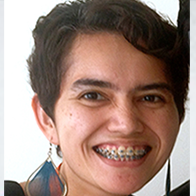 I am currently halfway through reading Muhammad Abdul Khalid’s The Colour of Inequality, and finally had the chance to watch the movie, Jagat, over the weekend.
I am currently halfway through reading Muhammad Abdul Khalid’s The Colour of Inequality, and finally had the chance to watch the movie, Jagat, over the weekend.
Coincidentally, this week, the saddest news to reach me was the news of a university student who starved herself to cause serious internal bleeding due to financial hardships.
Concurrently, there was news on how our undergraduates were not having enough to eat but thankfully, there are already initiatives by the alumni and current students themselves to mitigate the issue.
As a giving society, I do urge all of us to support the initiative by Food for Mahasiswa, in the hope that we continue to be supportive of such initiatives in the future and extend a helping hand when a fellow Malaysian requires it.
Let’s admit it: times are hard, and it’s hard for all of us.
Being in my early 30s, I have to admit that I come from a privileged generation of Malaysians.
My parents lived the Malaysian dream of earning enough to make us feel comfortable financially, having lived in an era of revered civil servants.
I am a product of public education, having grown up eating nasi kawah at boarding school and at university that prevented me from facing such situations as highlighted recently during my own years of studying.
If memory serves me correctly, the cost for breakfast, lunch and dinner was RM3.50 per day (due to it being highly subsidised) for those of us who lived on campus, in a public university in the middle of Kuala Lumpur.
Suffice to say, the subsidies are no longer in place, and many of such colleges can no longer afford to provide the groceries required at such a price today.
I was even sponsored by a government-backed scholarship for my postgraduate education overseas during which, I did learn to dumpster dive for days-old bread and made Maggi Mee my staple diet.
I left the cinema after the movie Jagat with a very heavy heart.
I came from a small town called Perai in Butterworth, and my late grandfather worked, nearly all his life, with KTMB.
Apoi’s story is set in a town very similar to the one I grew up in, yet, I was protected by a bubble created by a grandfather who had the same dreams as Apoi’s father did. A dream filled with Reader’s Digests, books on Sufism and the many series by Enid Blyton.
I was brought up thinking and loving education more than wealth, that it is "normal" to be sacrificing wealth for education.
To some extent, and it is with a heavy heart that I admit this, my ethnicity has a say in the privileges that I had growing up.
I do not actually need the data provided so beautifully and articulately in Khalid’s book; I had experienced it in my family.
The New Economic Policy (NEP) has provided an upward mobility for generations of Malays, as evident from my own family.
Yet, the two original objectives of NEP were poverty eradication regardless of race and the restructuring of society to eliminate the identification of race with economic function.
Why then was Apoi and his classmates left out in the race of providing upward mobility?
What made his uncles, and unfortunately Apoi himself, succumb to the supposedly easy, fast way of gaining "respect" and money?
If education is really the answer to eradicating poverty, why do we see undergraduates struggling to have enough money to purchase dinner?
I do not think these questions can be answered in an 800-word column or one well-researched book. I also do not seek these answers instantly. But these questions should be the questions we continue to ask and demand good governance to focus on.
Providing free meals is only a temporary measure, we have to ensure that there are jobs out there for our graduates, that they do not need to have two or more jobs in order to make ends meet, nor do they need to become entrepreneurs if they do not have the passion to.
Human beings are geared to survive. It is the environment and our gut instincts that dictate how we choose to act for survival.
Imagine if Apoi were to have been allowed to follow his dreams, he might be a Tamil superstar ala Rajinikanth, or even a famous painter.
Who knows, he might even be the first Malaysian to win the Nobel Literature Prize in 2057.
Apoi would be 36 years old this year. Would he had lived to see it, being embroiled in violence, and possibly drugs, from the age of 12?
Had he actually graduated from a public university, become stereotypically a lawyer, a doctor or an engineer and provided for his parents and surviving uncle, lifting them out of the poverty they had lived in all their lives?
Would Apoi had the latter life if only NEP had been implemented to extend beyond race? – January 13, 2016.
* This is the personal opinion of the writer or publication and does not necessarily represent the views of The Malaysian Insider.


Comments
Please refrain from nicknames or comments of a racist, sexist, personal, vulgar or derogatory nature, or you may risk being blocked from commenting in our website. We encourage commenters to use their real names as their username. As comments are moderated, they may not appear immediately or even on the same day you posted them. We also reserve the right to delete off-topic comments